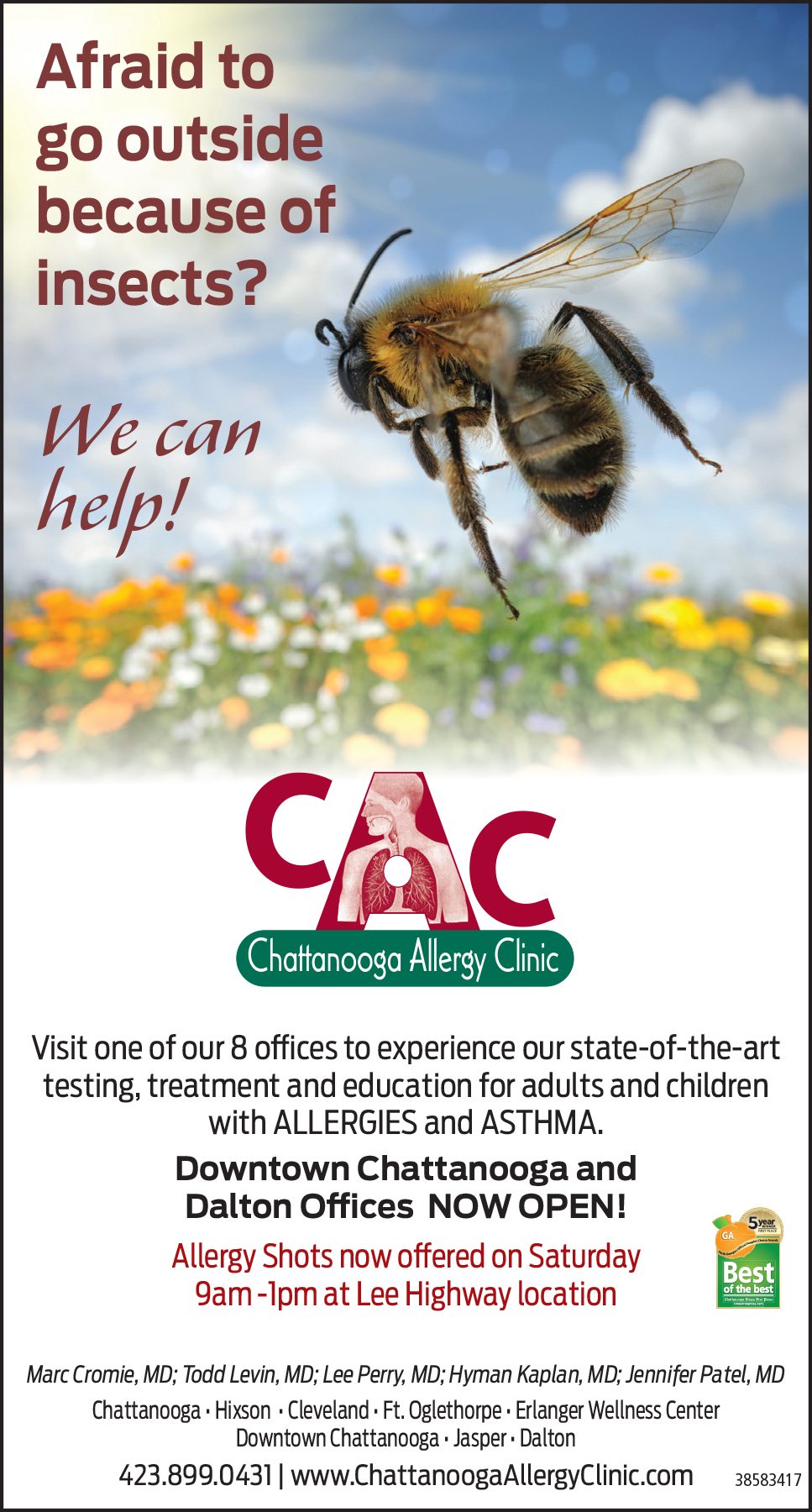School is back in session, and Chattanoogans are hopeful that cooler temperatures and football tailgates are just around the corner. Before all the fall festivities begin, it is time to start getting ready to beat those nasty seasonal allergens.
"Once kids are back in school for about three or four weeks, we start to see a huge increase of asthma attacks," Dr. Todd Levin explained. "Ragweed is out, they're getting exposed to mold, roaches in some cases and all those new viruses that they've been free from all summer. It's important to get treated early and be on the right medications to prevent serious reactions."
He noted that during the beginning of the school year, he typically sees more emergency room visits for children with asthma because of all these refreshed triggers that they are coming in contact with.
"You should certainly start treating the problem before symptoms occur if possible," Levin said. "Once your symptoms are there, the cat's out of the bag, so to speak, and it can be a little more difficult to get it under control."
Allergies can be the underlying cause of frequent sinus, ear and upper and lower respiratory tract infections. Untreated allergies can even exacerbate or cause asthma; according to the Academy of Allergy, Asthma and Immunology, approximately 80 percent of all asthma in children and half of all asthma in adults is caused by allergies.
Allergies are responsible for symptoms that may make it difficult to concentrate or cause sinus headaches, which can result in a loss of productivity for adults at work or cause problems for children at school. That's why taking control of your allergies now is so important.
The best way to help prevent severe reactions is to see your local allergist right away for testing and to be sure all medications are up to date.
The allergist will conduct a patient history including an analysis of your symptoms, a relevant physical exam and a thorough environmental evaluation. The allergist will also conduct a skin test to determine your specific allergens, the most common being dust mites, pollens, mold and pet dander. This skin test is effective to evaluate both inhalant allergens and food allergens.
"With fall, we also start dealing with ragweed," Levin added. "The biggest symptoms for those affected by the plant are nasal congestion, watery and itchy eyes."
Levin stressed that the key to not letting the ragweed season get you down is starting treatment as early as possible.
"For those who can start three to four months before the season hits, we have an oral medication that's very effective," he said. "Ragweed typically begins in our area Aug. 15, give or take a week, and runs until the first frost of the season."
Once the allergist identifies the allergens that are causing your symptoms, a treatment plan can be recommended. Possible treatment plans include avoidance of allergens, medications and allergy shots (immunotherapy).
Levin said that the most successful treatment for patients and the ultimate goal is allergy shots. Retraining the patient's immune system creates an outcome of relief that will last 30-40 years, versus oral and over the counter medications that only allow the body to tolerate the allergens and their triggers.
"You should start your regular meds if you have them and be seen by your allergist, so we can develop a customized treatment plan," Levin said. "If you're super allergic, we need to start on shots and desensitize patients from the allergens to prevent serious reactions and maybe even cure the allergies completely."
As the leaves begin to fall later in the season, locals also start dealing with mold allergies, Levin explained.
"Wet leaves and mulch all start to produce higher mold spore counts, which can give people a lot of trouble," he said.
He added that there are tips and helpful hints available for these seasonal troubles and much more on Chattanooga Allergy Clinic's website, chattanoogaallergyclinic.com, and on the office's Facebook page.
Noteworthy:
"You should certainly start treating the problem before symptoms occur if possible," said Dr. Todd Levin of Chattanooga Allergy Clinic. "Once your symptoms are there, the cat's out of the bag, so to speak, and it can be a little more difficult to get it under control."
MORE INFORMATION
Chattanooga Allergy Clinic treats all types of allergic disorders and problems. It has five offices with eight providers in and around Chattanooga and has just added new offices in downtown Chattanooga and Dunlap. For more information about summer allergies or to find an office near you, visit chattanoogaallergyclinic.com or call 423-899-0431.

